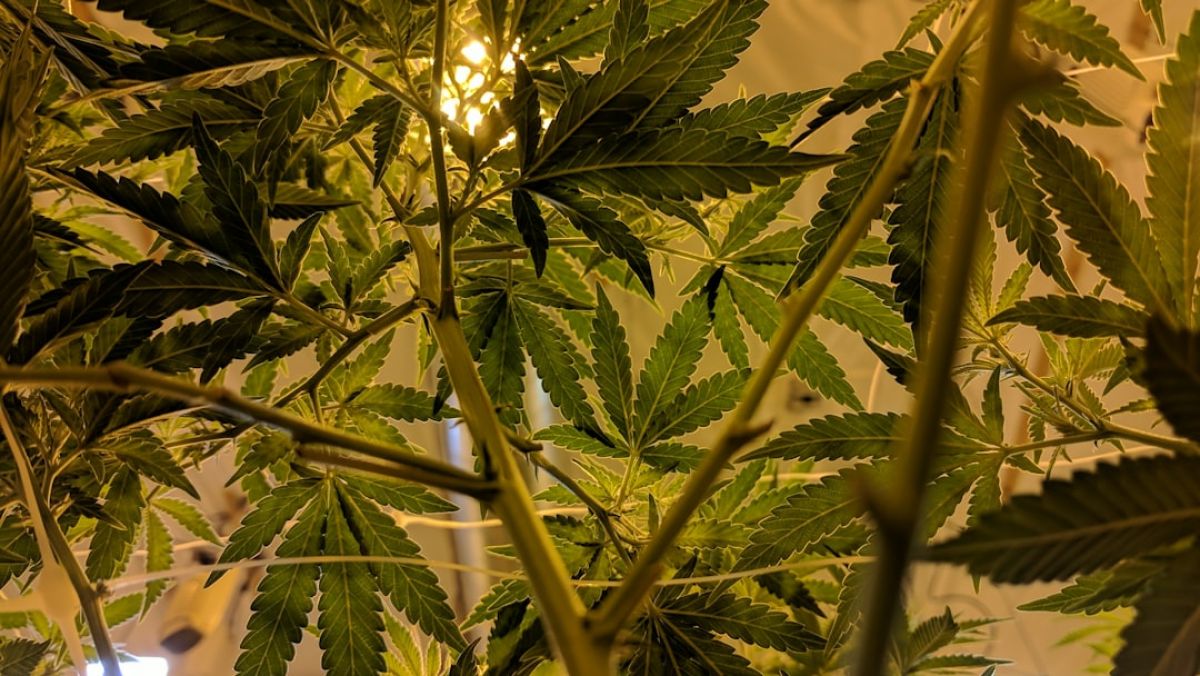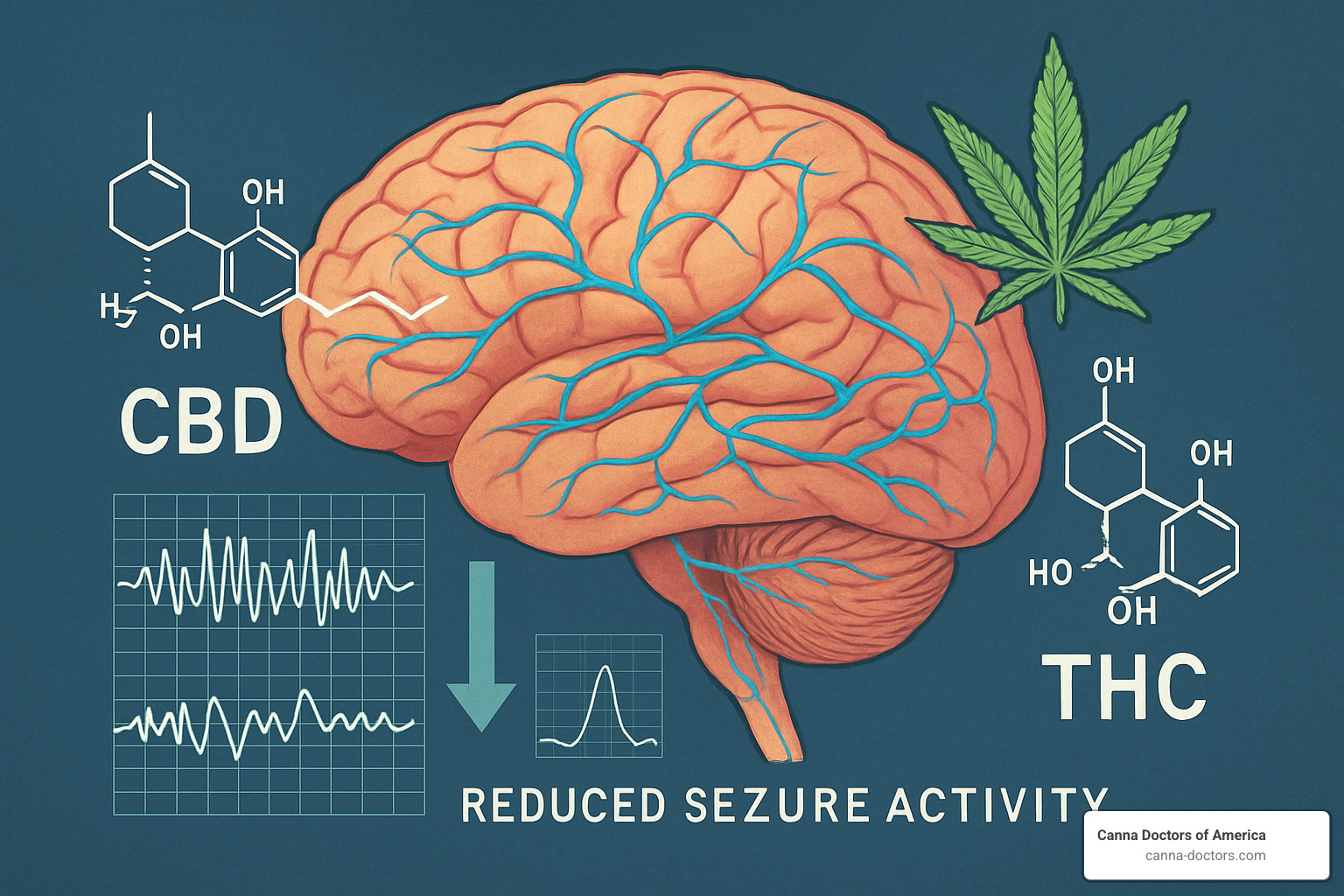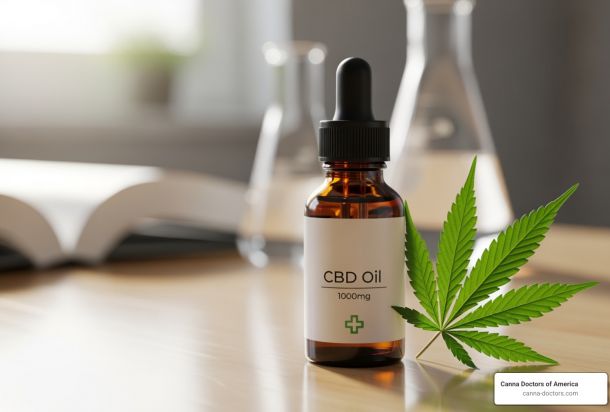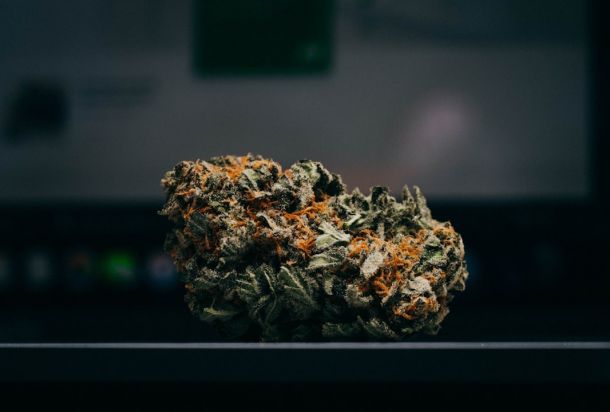High on Health – The Top Benefits of Cannabis Explained

Finding Nature’s Medicine: The Evidence-Based Benefits of Cannabis
Health benefits of cannabis include chronic pain relief, reduced inflammation, management of neurological disorders, alleviation of chemotherapy-induced nausea, and support for mental health conditions. Research also supports its effectiveness for multiple sclerosis spasticity, epilepsy, sleep disorders, and appetite stimulation.
| Top Health Benefits of Cannabis | Supporting Evidence |
|---|---|
| Chronic Pain Management | Substantial evidence from multiple clinical trials |
| Reduced Inflammation | Studies show effectiveness for arthritis and IBD |
| Neurological Disorder Treatment | FDA-approved for certain forms of epilepsy |
| Chemotherapy Side Effect Relief | Conclusive evidence for nausea and vomiting |
| Anxiety & PTSD Support | Emerging evidence for symptom reduction |
| Multiple Sclerosis Spasticity | Significant patient-reported improvement |
For decades, cannabis was stigmatized and its medicinal properties overlooked. Today, science is confirming what many patients have experienced firsthand: this plant contains powerful compounds that interact with our body’s own endocannabinoid system to promote healing and balance.
The cannabis plant contains over 100 different cannabinoids, with THC and CBD being the most well-studied. These compounds work by binding to receptors throughout your body, potentially offering relief where traditional medications have failed.
What makes cannabis particularly remarkable is its versatility. Unlike many pharmaceutical drugs designed to target single symptoms, cannabis compounds appear to work holistically, addressing multiple concerns simultaneously while often producing fewer side effects than conventional treatments.
I’m Geoff Massey, Regional Director of Canna Doctors of America, where I’ve spent years helping patients access the health benefits of cannabis through personalized treatment plans and education about cannabinoids. My experience has shown that when patients receive proper guidance on product selection and dosing, they often achieve significant improvements in their quality of life.
Health benefits of cannabis terms you need:
– cannabis consultants
– medical marijuana law Florida
– cannabis treatment for PTSD
Top 10 Science-Backed Health Benefits of Cannabis
Have you ever wondered what’s really happening when people talk about the health benefits of cannabis? It’s not just about getting high – this remarkable plant contains over 120 different cannabinoids, with THC and CBD being the most famous, plus dozens of terpenes that give each strain its unique aroma and effects.
What makes cannabis so special is how these compounds work together. Scientists call this the “entourage effect” – think of it like a band where each musician contributes something unique, creating music that’s more powerful than any solo performance. That’s why at Canna Doctors of America, we often recommend full-spectrum products rather than isolated compounds for many of our patients in Tampa, St. Petersburg, and Clearwater.
Let’s explore the incredible ways cannabis might help your health, backed by solid science.
Chronic Pain Relief: A Core Health Benefit of Cannabis
If you’ve struggled with chronic pain, you’re not alone – and cannabis might offer the relief you’ve been searching for. A major 2017 review analyzing over 10,000 scientific studies found substantial evidence that cannabis effectively treats chronic pain in adults.
Cannabis shines especially bright for neuropathic pain – that stubborn, burning pain from nerve damage that often doesn’t respond well to regular medications. Research shows patients using cannabis-based medicines experience about 30% greater pain reduction compared to placebo.
“I’ve seen the change firsthand,” shares our medical director. “Many patients in our Tampa clinic have been able to reduce or completely stop their opioid medications after finding the right cannabis regimen. For them, it means fewer side effects and getting their lives back.”
For arthritis sufferers, cannabis offers a two-for-one benefit: it tackles both pain and inflammation. Products like nabiximols (a spray with equal parts THC and CBD) have shown significant improvements in pain during movement, pain at rest, and sleep quality for people with rheumatoid arthritis.
Treating Chronic Pain with Medical Marijuana in Tampa
Reducing Inflammation: Another Health Benefit of Cannabis
Inflammation is at the root of many chronic conditions, and cannabis has powerful anti-inflammatory properties. Both THC and CBD fight inflammation, but through different pathways in your body.
CBD has become particularly popular because it reduces inflammation without making you feel “high.” It works by dampening inflammatory signals, boosting anti-inflammatory molecules, and even helping restore the gut lining in digestive conditions.
The results speak for themselves: in a study of 428 people with arthritis, 44% experienced significant pain reduction after using CBD. Even more impressive, over 60% were able to reduce or stop their other medications.
For those suffering from inflammatory bowel conditions like Crohn’s disease or ulcerative colitis, cannabis compounds show real promise. Recent research found that CBD and other non-intoxicating cannabinoids can help prevent and treat these conditions by targeting specific receptors in your digestive system.
“The anti-inflammatory health benefits of cannabis can be truly life-changing,” explains our clinical director. “Many patients in St. Petersburg and Clearwater tell us they finally feel like themselves again after starting treatment.”
How Does Medical Marijuana Help with Arthritis and Inflammation?
Neurological & Psychiatric Support
Some of the most exciting health benefits of cannabis involve the brain and nervous system. In 2018, the FDA approved Epidiolex, a purified CBD medication, for treating rare and severe forms of epilepsy – marking the first official approval of a cannabis-derived drug.
The results have been remarkable: in clinical trials, CBD reduced seizure frequency by about 40% in children with Dravet syndrome, a rare but devastating form of epilepsy. A 2017 study found that CBD resulted in significantly fewer seizures compared to placebo.
For multiple sclerosis patients, cannabis-based medications have shown significant improvement in spasticity, pain, and sleep quality. The evidence is so strong that cannabis treatments are now recommended in several countries for MS-related muscle stiffness.
When it comes to mental health, cannabis shows promise for several conditions. CBD appears to reduce anxiety without THC’s psychoactive effects, potentially helping with generalized anxiety, social anxiety, panic disorder, and OCD. For PTSD sufferers, cannabis may reduce nightmares, improve sleep, and decrease hyperarousal symptoms by helping the brain process traumatic memories differently.
Early research also suggests CBD may have antidepressant-like effects by enhancing certain brain chemicals related to mood.
“Finding the right cannabinoid profile and dosage is crucial for neurological and psychiatric conditions,” our medical director emphasizes. “What works beautifully for one patient might not help another, which is why we create individualized treatment plans at Canna Doctors of America.”
Medical Cannabis and Its Impact on Anxiety and Depression
Cancer Care & Anti-Tumor Potential
For cancer patients, cannabis can be a true ally during difficult treatments. The FDA has approved synthetic THC medications for chemotherapy-induced nausea and vomiting, with conclusive evidence supporting their effectiveness.
The numbers are impressive: in a 6-month clinical trial of nearly 3,000 cancer patients treated with medical cannabis, over 60% showed significant improvement, and an astounding 95.9% reported better overall health.
Beyond helping with nausea, cannabis addresses multiple cancer-related symptoms including pain, poor appetite, insomnia, mood disturbances, and fatigue – all with a single plant rather than a handful of different medications.
Even more intriguing, laboratory and animal studies suggest cannabinoids might have direct anti-tumor effects. Research indicates THC and CBD may actually kill cancer cells, prevent them from growing, stop tumors from forming new blood vessels, and reduce their ability to spread.
“While we would never claim cannabis cures cancer, the research on its role in cancer care is certainly promising,” notes our clinical director. “Many Tampa patients tell us that medical cannabis helps them better tolerate their treatments and maintain quality of life during an incredibly challenging time.”
Scientific research on cannabis and cancer
Gastrointestinal & Metabolic Benefits
Did you know your digestive system is full of cannabinoid receptors? This makes cannabis particularly effective for gastrointestinal issues. The health benefits of cannabis for digestive health include reducing inflammation, healing “leaky gut,” regulating digestion speed, decreasing pain sensitivity, and improving the gut-brain connection.
For inflammatory bowel disease patients, the results can be dramatic. In one small study of Crohn’s disease patients, 10 out of 11 experienced significant improvement with cannabis treatment, with 5 achieving complete remission – results many pharmaceutical treatments struggle to match.
IBS sufferers may also find relief through cannabis’s ability to regulate gut function and reduce hypersensitivity to pain signals. CBD specifically has been shown to reduce intestinal inflammation and normalize gut motility in IBS models.
Here’s something surprising – despite THC’s famous reputation for causing “the munchies,” population studies consistently show that regular cannabis users tend to have lower BMIs and reduced rates of obesity and diabetes compared to non-users. This paradox may be explained by cannabis’s complex effects on metabolic regulation and insulin sensitivity.
“Many of our patients with gastrointestinal conditions tell us cannabis is the first treatment that’s given them consistent relief,” says our Tampa clinic director. “For some, it’s truly been life-changing after years of suffering.”
Recent study on cannabis and gastrointestinal disorders
Understanding How Cannabis Works in the Body
Ever wonder why cannabis can help with so many different conditions? The secret lies in how it interacts with a remarkable system already present in your body. To fully appreciate the health benefits of cannabis, we need to understand this fascinating relationship.
Your body contains an intricate network called the endocannabinoid system (ECS), finded in the early 1990s. Think of it as your body’s internal balancing mechanism, constantly working to keep things running smoothly. This system helps regulate sleep, mood, appetite, memory, reproduction, immune response, pain perception, and how you handle stress.
Here’s the fascinating part – the ECS exists and stays active whether you use cannabis or not. It’s made up of three key components working together: molecules your body produces called endocannabinoids, receptors these molecules attach to, and enzymes that clean everything up afterward.
“The endocannabinoid system is essentially your body’s natural cannabis system,” explains our medical director. “It helps explain why cannabis can affect so many different conditions – it’s not just one effect but a complex interaction with a system that helps maintain balance throughout your entire body.”
Your body produces two main endocannabinoids – anandamide (often called the “bliss molecule”) and 2-arachidonoylglycerol (2-AG). These attach to two types of receptors: CB1 receptors (mainly in your brain and nervous system) and CB2 receptors (primarily in your immune system and throughout the body).
When you use cannabis, THC can bind directly to both these receptors, which explains its wide-ranging effects. CBD works differently – rather than binding directly, it prevents your natural endocannabinoids from breaking down, allowing them to have more influence on your body.
| Cannabinoid | Primary Receptor Targets | Main Effects | Medical Applications |
|---|---|---|---|
| THC | CB1, CB2 | Psychoactive effects, pain relief, appetite stimulation, muscle relaxation | Chronic pain, spasticity, nausea, appetite loss |
| CBD | Indirect ECS effects, 5-HT1A, TRPV1 | Non-intoxicating, anti-inflammatory, anxiolytic, anticonvulsant | Epilepsy, anxiety, inflammation, psychosis prevention |
At our Tampa clinic, we find that patients who understand this system make more informed choices about their cannabis medicine. This knowledge helps explain why different strains and products can produce such varied effects.
What Are the Different Medical Benefits? Comparing CBD to THC
The Entourage Effect Explained
Cannabis isn’t just about THC and CBD – it’s more like a natural symphony. The plant contains hundreds of compounds working together, including minor cannabinoids (like CBG, CBC, CBN, and THCV), aromatic terpenes (myrcene, limonene, pinene, linalool, caryophyllene), and flavonoids that give plants their vibrant colors.
These compounds don’t just exist side by side – they actively improve each other’s effects in what scientists call the “entourage effect.” It’s like how a choir sounds more powerful than a single voice, even when singing the same notes.
“I often explain the entourage effect to my patients in St. Petersburg using a food analogy,” shares our clinical director. “Think about eating a whole orange versus taking a vitamin C pill. The whole fruit contains fiber, other vitamins, and compounds that help your body process and benefit from the vitamin C more effectively. Cannabis works similarly – the whole plant often provides greater benefits than isolated compounds alone.”
Some fascinating examples of this synergy include beta-caryophyllene (a terpene also found in black pepper) activating CB2 receptors and enhancing CBD’s anti-inflammatory effects. The terpene myrcene may help THC cross the blood-brain barrier more effectively. Limonene, with its citrusy scent, appears to lift mood and may work alongside CBD to reduce anxiety, while the lavender-scented linalool complements the sedative effects of certain cannabinoids.
This explains why many of our patients report better results from whole-plant extracts compared to isolated cannabinoids, and why finding the right strain or product formulation can make such a difference in treatment outcomes.
Safe Consumption & Dosing Strategies
When it comes to experiencing the health benefits of cannabis, finding your “just right” dose is crucial. Too little might provide no benefit, while too much could lead to unwanted side effects. At Canna Doctors of America, we guide our patients through this process with care and precision.
Our golden rule? Start low and go slow. Beginning with the lowest effective dose and gradually increasing allows your body to adjust and helps you find your personal sweet spot. This approach minimizes side effects while maximizing benefits.
The way you consume cannabis significantly impacts your experience. Inhalation through vaporizing offers the fastest onset (typically within minutes) but shorter duration (2-3 hours). Sublingual tinctures placed under the tongue provide a moderate onset (15-45 minutes) with medium duration (4-6 hours). Edibles take longer to kick in (30-90 minutes) but offer the longest-lasting effects (6-8+ hours). Topicals work locally with minimal absorption into the bloodstream.
“Finding the right cannabis medicine is a bit like finding the right pair of shoes,” explains our Tampa clinic director. “What fits perfectly for one person might not work for another. We help our patients through this process of findy, adjusting the dosage, delivery method, and cannabinoid profile until we find what works best for their specific needs.”
The ratio of THC to CBD in your cannabis medicine dramatically influences its effects. High THC products (like 20:1 THC:CBD) provide stronger psychoactive effects but may offer more relief for severe pain or nausea. Balanced products (1:1 THC:CBD) offer moderate psychoactivity with CBD helping to buffer THC’s effects. High CBD products (like 20:1 CBD:THC) provide minimal psychoactivity while focusing on anti-inflammatory and anxiety-reducing effects.
We strongly recommend keeping a simple journal to track which products and doses work best for you. Note the product name, dose, effects (both positive and negative), and timing. This information becomes invaluable in optimizing your treatment plan over time.
With proper guidance and a methodical approach, most patients can find a cannabis regimen that provides significant relief with minimal unwanted effects. Our Clearwater medical team is dedicated to helping you steer this journey safely and effectively.
Risks, Side Effects & Responsible Use
While we’ve explored the many health benefits of cannabis, I’d be doing you a disservice if I didn’t also talk about potential risks. After all, like any medicine, cannabis isn’t without its considerations.
Most people experience mild side effects that resolve quickly, including things like temporary memory fogginess, slightly wobbly coordination, or altered judgment. You might notice your heart beating a bit faster, or deal with the classic “cotton mouth” and red eyes. For some folks, especially with high-THC products, feelings of anxiety or paranoia can pop up – though this often improves with the right product selection.
More serious considerations deserve honest conversation. Heavy, long-term use that starts during adolescence may impact cognitive development in ways we’re still researching. About 9% of cannabis users develop dependence – a lower rate than alcohol or tobacco, but still worth acknowledging.
“We believe patients deserve complete information,” our medical director often says. “Understanding both benefits and risks leads to better outcomes.”
For some individuals, extra caution makes sense. Teenagers’ developing brains appear more vulnerable to potential effects. Pregnant women should avoid cannabis as it may influence fetal development. If you have cardiovascular disease, the temporary increases in heart rate might be concerning. And those with personal or family histories of psychosis should have detailed conversations with their doctor, as cannabis (particularly high-THC varieties) might increase vulnerability.
When it comes to mental health, the relationship is complex. While many find relief from anxiety and depression with the right cannabis medicine, others – particularly those using high-THC products – might experience increased anxiety or worsening of existing mental health conditions.
“We take a personalized approach with every patient,” explains our Tampa clinic director. “What works beautifully for one person might not be right for another, especially when considering mental health history.”
Scientific research on long-term use
Minimizing Harm While Maximizing Health Benefits of Cannabis
The good news? With the right approach, most people can enjoy the health benefits of cannabis while minimizing potential downsides. Here’s how we guide our patients:
Microdosing works wonders for many people. Using the smallest effective amount often provides substantial relief with barely noticeable side effects. I’ve seen patients transform their experience simply by adjusting to smaller, more frequent doses rather than one larger dose.
Laboratory-tested products are non-negotiable. Florida’s medical marijuana program requires rigorous testing, ensuring you’re getting clean medicine with accurate labeling. This eliminates guesswork and significantly improves safety.
Finding your ideal cannabinoid ratio is like finding your perfect cup of coffee – deeply personal and worth the exploration. If you’re concerned about feeling “high,” high-CBD products offer many therapeutic benefits with minimal intoxication. Our Tampa, St. Petersburg, and Clearwater patients often start with balanced THC:CBD products and adjust from there.
Consider alternatives to smoking. While many patients prefer the immediate relief of inhalation, vaporizing flower creates fewer respiratory irritants than combustion. Tinctures, oils, and edibles eliminate respiratory concerns entirely.
Medication interactions matter. Cannabis can affect how your body processes certain medications, including blood thinners, antidepressants, and sedatives. This is why we always review your complete medication list during consultations.
“Most side effects can be managed with thoughtful product selection and dosing,” our clinical director often reminds patients. “It’s about finding that sweet spot where you get maximum benefit with minimal downsides.”
At Canna Doctors of America, we’ve seen countless patients transform their health through careful, responsible cannabis use. The key is personalized guidance, honest information, and a willingness to fine-tune your approach until you find what works best for your unique body and health goals.
Legal Landscape & Medical Access in Florida
The Sunshine State has come a long way in recognizing the health benefits of cannabis. Florida’s medical marijuana program has blossomed since it began, now offering relief to thousands of patients across Tampa, St. Petersburg, and Clearwater.
As of 2023, Florida recognizes quite a few qualifying conditions that make patients eligible for medical cannabis. These include cancer, epilepsy, glaucoma, HIV/AIDS, PTSD, ALS, Crohn’s disease, Parkinson’s disease, and multiple sclerosis. The program also covers chronic nonmalignant pain, terminal conditions, and medical conditions comparable to those specifically listed.
Getting legal access to the health benefits of cannabis in Florida isn’t complicated, but it does require following a specific process. You’ll need to be either a permanent Florida resident or a seasonal resident who calls Florida home for a significant portion of the year. You must have a qualifying condition, get registered in the Medical Marijuana Use Registry by a qualified physician (that’s where we come in!), and obtain your Medical Marijuana Use Registry identification card.
“Many of our patients are surprised by how straightforward the process really is,” shares our regional director. “Most are used to jumping through endless hoops for healthcare, but Florida’s system is actually designed to help patients, not hinder them.”
It’s worth noting that while Florida accepts medical cannabis, there’s still a disconnect with federal law. Cannabis remains classified as a Schedule I controlled substance at the federal level, which creates some challenges for patients. This federal status can potentially affect federal housing eligibility, certain types of employment, and firearm ownership. You also can’t legally transport your medicine across state lines, and unfortunately, health insurance typically doesn’t cover medical marijuana expenses.
“We always make sure our patients understand both sides of the coin,” explains our Tampa clinic director. “Knowledge is power, especially when it comes to making informed decisions about your healthcare.”
Getting Certified: Step-by-Step Guide
At Canna Doctors of America, we’ve made accessing the health benefits of cannabis as simple as possible. Our team in Tampa, St. Petersburg, and Clearwater has streamlined the certification process to be patient-friendly and efficient.
The journey begins when you schedule a consultation with us – and good news, we often have same-day appointments available! When you meet with our compassionate physician, you’ll discuss your medical history and explore how cannabis might help address your specific concerns. Our doctors take the time to answer all your questions and ensure you feel comfortable with this treatment option.
If you qualify (and most patients with documented qualifying conditions do), our physician will enter your information into the state registry right away. You’ll then complete your state registration by paying the state fee, and typically within 10 business days, your medical marijuana card arrives.
Once your card is in hand, you’re free to visit any licensed dispensary in Florida. The dispensary staff will provide guidance on products that might work best for your condition. And we don’t just disappear after your initial certification – we offer convenient telehealth options for follow-up care, allowing us to make adjustments to your treatment plan as needed.
“One of the things I’m most proud of is how we’ve simplified what seems like a complex process,” our St. Petersburg clinic director notes. “We handle the complicated parts so our patients can focus on feeling better.”
Our team guides you through every step, from explaining the paperwork to helping you understand what to expect at your first dispensary visit. We believe that accessing medicine shouldn’t be stressful – and with Canna Doctors of America, it isn’t.
“The relief on patients’ faces when they realize how manageable the process is – that’s why we do what we do,” shares our Clearwater physician. “Helping people access the health benefits of cannabis without unnecessary problems is our mission.”
Frequently Asked Questions about the Health Benefits of Cannabis
Can cannabis replace my current pain medications?
Many of our patients ask about transitioning from traditional pain medications to cannabis. The answer isn’t black and white – it depends on your specific condition, current medications, and individual response to cannabis.
What we do know from research is promising. A meta-analysis examining five randomized trials found that inhaled cannabis provided meaningful short-term relief from chronic neuropathic pain for about 15-20% of patients. Even more encouraging, in observational studies of arthritis patients, 44% reported significant pain reduction when using CBD products.
“We’ve seen many patients successfully transition from opioids and other pain medications to cannabis,” shares our medical director. “But I always emphasize that this must be done gradually and under medical supervision. Abruptly stopping certain medications can cause withdrawal symptoms or pain flares, so we create personalized tapering plans to ensure you remain comfortable throughout the process.”
The goal isn’t necessarily complete replacement but finding the optimal balance that maximizes relief while minimizing side effects. For some patients, cannabis becomes their primary pain management tool, while for others, it works best as a complementary therapy that allows reduction in other medications.
Will CBD alone provide the same health benefits of cannabis?
CBD has certainly earned its reputation as a therapeutic powerhouse. It offers impressive anti-inflammatory, anxiety-reducing, and anticonvulsant properties – all without the intoxication associated with THC. For some conditions and some patients, CBD alone might be sufficient.
However, the full spectrum of health benefits of cannabis often comes from the interplay between multiple compounds. This “entourage effect” suggests that whole-plant medicines typically work better than isolated compounds. Think of it like cooking – individual ingredients are good, but the right combination creates something special.
For example, studies show that a 1:1 THC:CBD ratio often provides superior pain relief compared to either compound alone. The CBD helps mitigate THC’s potential side effects while enhancing its pain-relieving properties. Meanwhile, for conditions like anxiety or certain forms of epilepsy, CBD-dominant formulations may be the better choice.
“Some patients do extremely well with CBD-only products, while others need some THC to achieve optimal results,” explains our clinical director with a warm smile. “It’s very individualized, which is why professional guidance is so valuable. We help you steer these options based on your specific needs and comfort level.”
How do I find my optimal THC:CBD ratio?
Finding your ideal cannabinoid ratio is somewhat like finding the perfect recipe – it takes some experimentation, guided by expertise. Everyone’s endocannabinoid system is unique, which means your perfect balance might be different from someone else’s, even with similar symptoms.
Start by considering your symptoms and goals. Are you primarily seeking pain relief, help with inflammation, anxiety reduction, or better sleep? Your main concerns will guide our initial recommendations.
Your sensitivity to THC is another crucial factor. If you’re new to cannabis or have had uncomfortable experiences with THC in the past, we’ll typically suggest starting with a higher CBD:THC ratio (like 10:1 or 20:1) to minimize any psychoactive effects.
Keep a simple journal noting which products and ratios you try, along with their effects – both positive and negative. This information becomes invaluable as we fine-tune your treatment plan during follow-up visits.
“Finding the right cannabinoid profile is like finding the right key for a lock,” our physician explains with an encouraging nod. “When you find that perfect match between your endocannabinoid system and a specific cannabis formulation, the results can be truly transformative. We’ve seen patients who tried multiple medications without success finally find relief with the right cannabis approach.”
Conclusion
The health benefits of cannabis continue to impress both researchers and patients alike. From solid scientific evidence supporting its effectiveness for chronic pain and inflammation to groundbreaking applications for epilepsy, multiple sclerosis, and managing chemotherapy side effects, cannabis is proving to be a versatile medicine. Every day, we’re learning more about its potential to help with anxiety, PTSD, digestive issues, and even conditions affecting the nervous system.
What makes cannabis stand out in today’s medical landscape isn’t just its effectiveness, but how it offers many patients relief with fewer harsh side effects than traditional pharmaceuticals. When used thoughtfully under proper medical guidance, cannabis can transform quality of life in ways many patients never thought possible.
Here at Canna Doctors of America, we see these changes in our Tampa, St. Petersburg, and Clearwater clinics. Our team is passionate about creating personalized treatment plans that address your specific needs, not just your diagnosis. We’ve streamlined our approval process to get you started on the same day you visit us – because we understand that when you’re suffering, every day matters.
“I’ve seen patients who had given up hope find new possibilities through medical cannabis,” shares our medical director. “Sometimes it’s not about eliminating conditions entirely, but about making them manageable enough to enjoy life again.”
The science behind cannabis medicine is evolving at an incredible pace. New studies are constantly refining our understanding of how these remarkable plant compounds work with our body’s own systems. We make it our mission to stay on top of this research, translating complex findings into practical treatment approaches that work for real people with real challenges.
Living with chronic conditions can feel isolating, especially when conventional treatments haven’t provided the relief you need. If you’re wondering whether medical cannabis might help, we invite you to schedule a consultation at any of our Florida locations. Our compassionate team will guide you through every step – from certification to selecting products that align with your health goals.
You don’t have to steer this journey alone. With education, expert guidance, and ongoing support, the path to more natural relief becomes much clearer. That’s our promise to every patient who walks through our doors at Canna Doctors of America.










